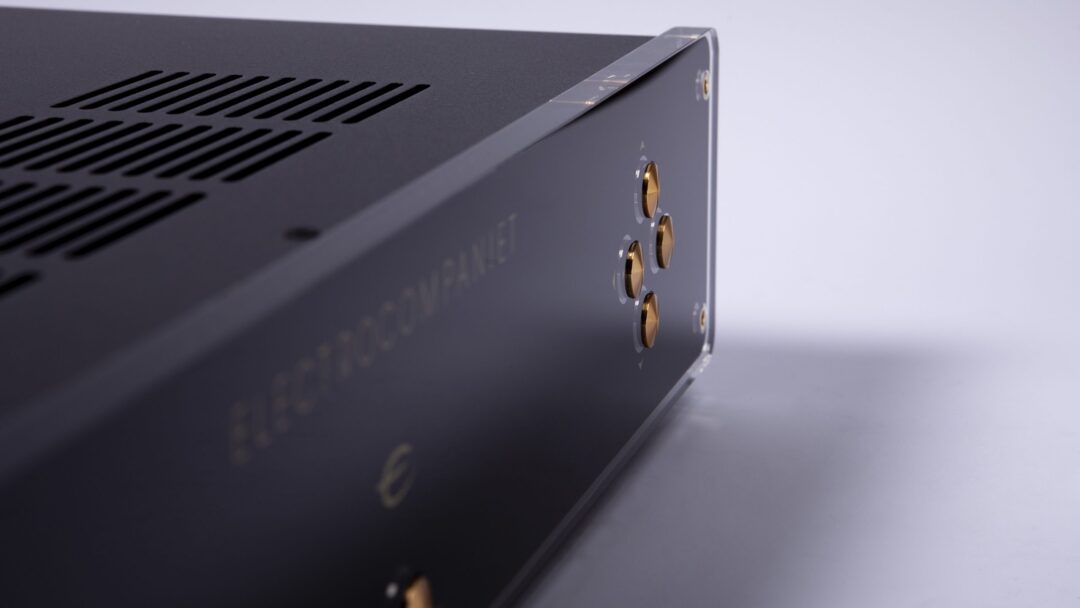The most iconic Norwegian hi-fi export is still called Electrocompaniet. Now it is admittedly a worn-out hi-fi story that Michael Jackson himself gave the producer a “Special thanks” in the cover of the releases History (1995) and Invincible (2001). Electrocompaniet was also another company at the time, with Per Abrahamsen as founder and chief designer. Which in turn is one of the biggest icons in the Norwegian hi-fi industry.
When you remove Michael Jackson and Per Abrahamsen, the brand is still strong, and Electrocompaniet has proven that they are fine on their own two feet. Admittedly, there have been some reefs in the sea, such as when they chose to completely forget about their core market in an attempt to follow in the footsteps of Sonos, with the EC Living concept. Preserved, it was multi-room products combined with the desire to keep prices down at Sonos level, and it was an economic loss drain with few parallels in Norwegian hi-fi history.
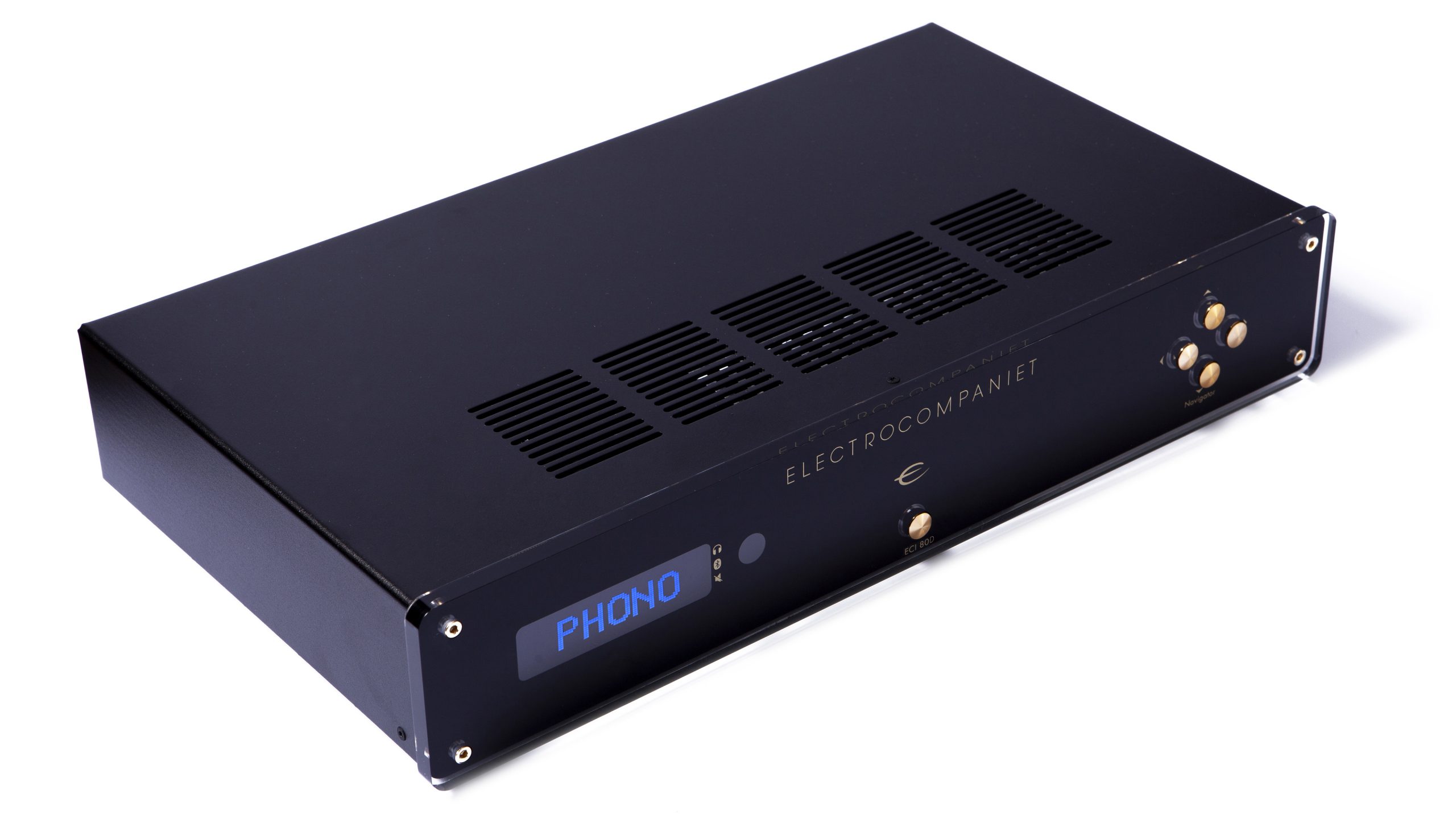
After a sour bankruptcy, Electrocompaniet has returned to its roots, and is once again focusing on its Classic line of hi-fi products. The very foundation of the brand name. EC Living continues, but is no longer the main focus.
The classic components are not cheap, there are no serious hi-fi products. But the manufacturer from Tau has now come up with its most affordable amplifier in a long time, which for a little over 20,000 kroner offers much of the goodies from its more expensive siblings.
Analog amplifier with digital fun
The ECI 80D is an analog Class AB amplifier, like all others from Electrocompaniet’s Classic series. It was the most common type of amplifier, until we have gradually been flooded with cheaper and more efficient llasse D. But class AB is still mostly used in expensive hi-fi.
It simply produces a warmer, more natural sound than Class D is capable of, according to Electrocompaniet. And although it is entirely possible to make fantastic digital amplifiers with a switched power supply, my experience is that there is a long way between every really good class D amplifier.
The ECI 80D is still aimed at most people and their digital everyday life, and is therefore in addition to two analog inputs equipped with as many as five digital inputs. These are evenly distributed between optical and coaxial, with an extra in favor of optical.
In addition, it has been realized that many want to control the music with the mobile phone. But instead of providing ECI 80D network functionality, it has simply got Bluetooth. Although it supports enhanced sound with aptX codec for Android and AAC for iPhone, it is a compromise that sacrifices sound quality for convenience. But it is “good enough”, and what people have asked for, according to themselves.
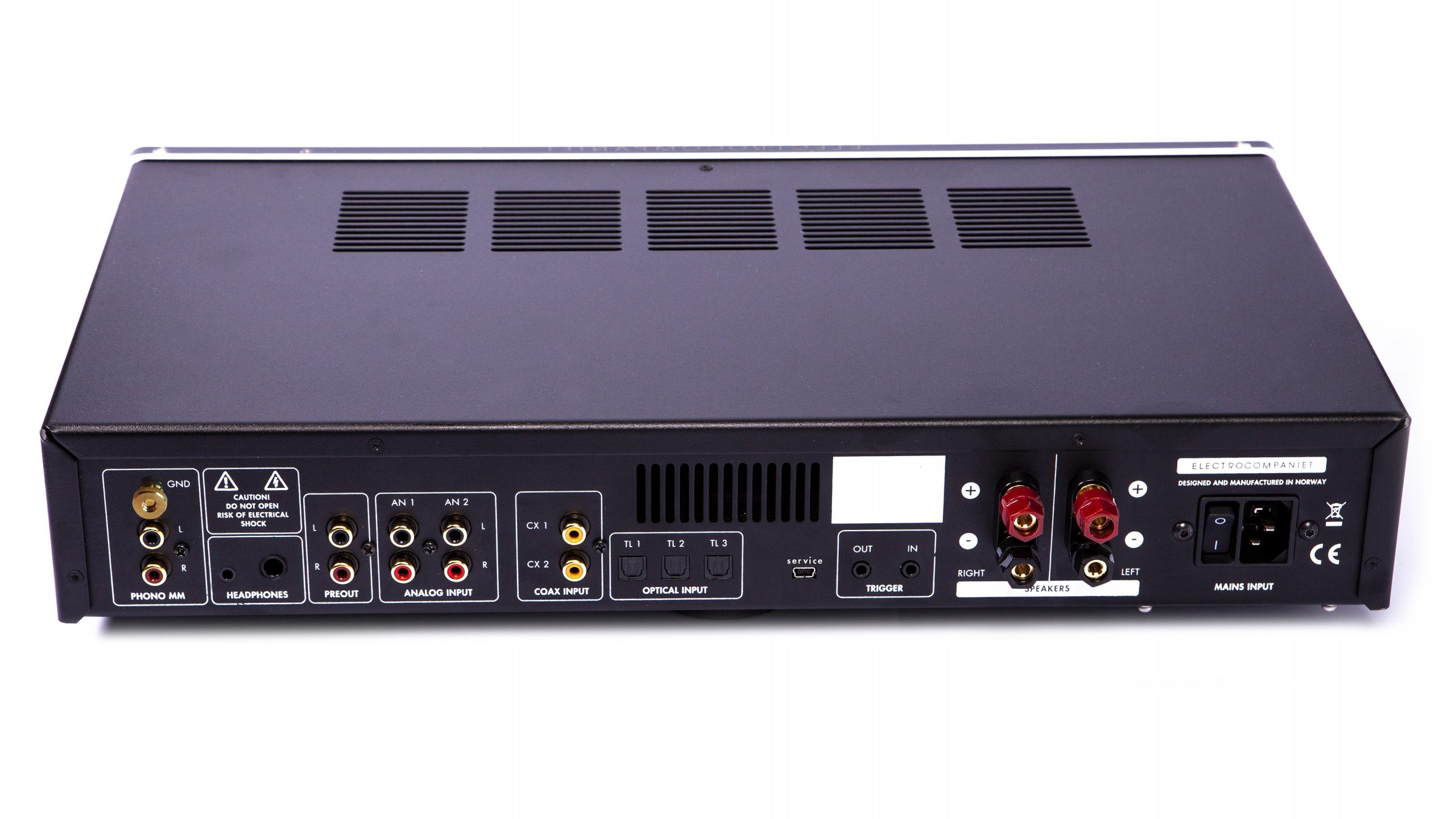
Turntable input
Another thing that is sought after is the turntable input. The ECI 80D is actually Electrocompaniet’s very first amplifier to have one. It is for MM pickups, which means all but very expensive pickups. Reasonable.
Electrocompaniet has not only used off-the-shelf products here, but has constructed a serious turntable input that will really do your record collection justice. I think it does a good job with my Pro-ject Debut Carbon Esprit with Ortofon 2M Black pickup.
There is nothing to gain from connecting to my affordable Cambridge 651P (which admittedly is no longer for sale); then I would actually rather use the built-in input in the ECI 80D. Nice to know that you can save money on extra components.
Headphone output
The same love has been put into the headphone outputs. They have got their very own amplifier circuit, and should be good and powerful enough to drive even twisted high-end cases. There is both a 6.3 mm and a 3.5 mm output, and both can be used at the same time if you want. But then you can not play as high on each before the control decreases.
Interestingly, they have chosen to place the headphone outputs on the back, which means that the headphones are intended to be almost always connected. Therefore, there is a button on the remote control where you can choose between speakers or headphones. You can not play through both at the same time, to prevent the possibility of destroying something.
For the record: The built-in headphone amplifier is very good. I tried the Sennheiser HD 800S, which sounds flat with bad amplifiers. They do not here, it is both life and details, and a bass control that you normally only get with a separate headphone amplifier. The ECI 80D is in class with the Hegel H95 here, which was also praised for this.
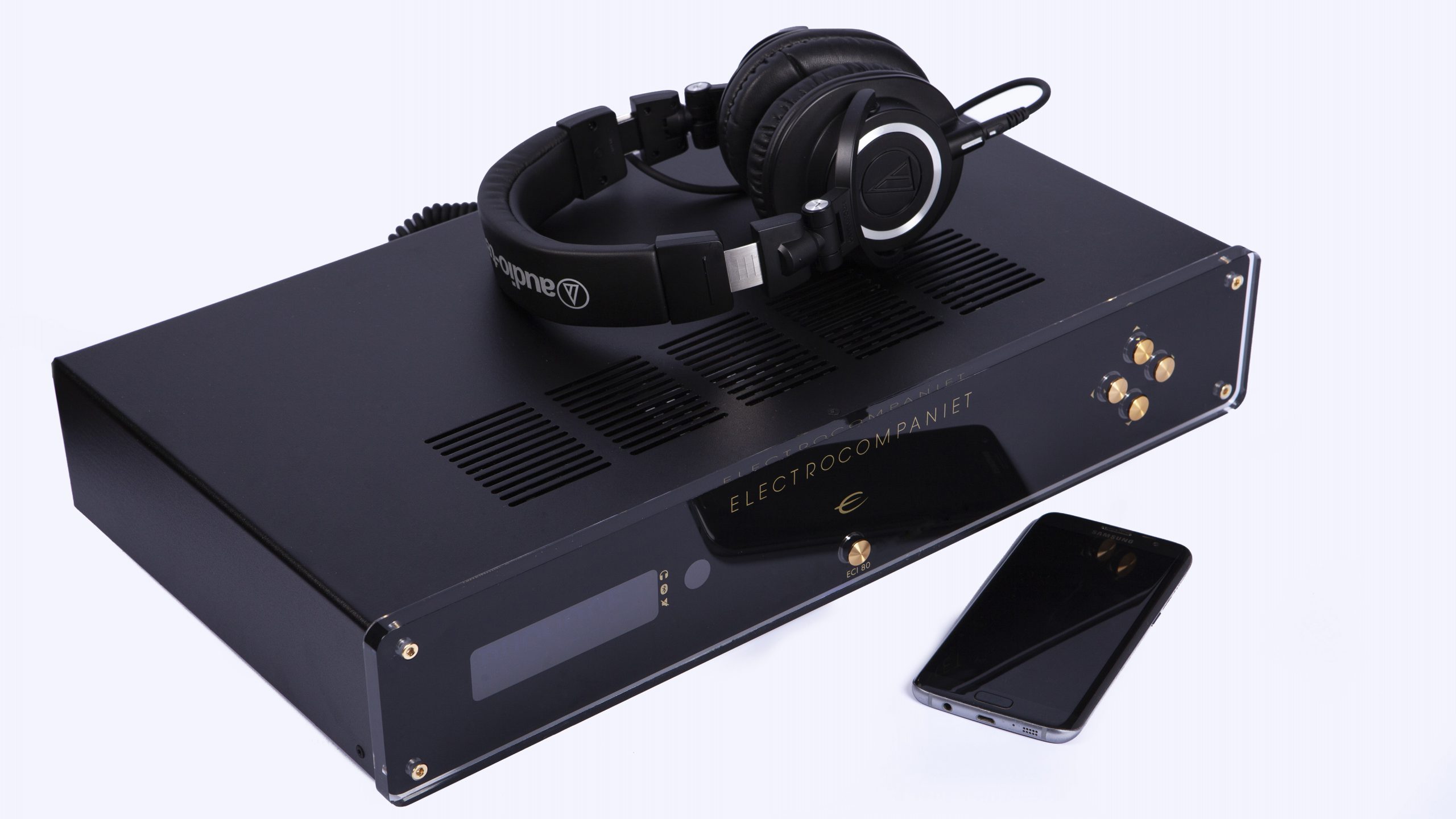
The sound of fireplaces
Now that we are entering the autumn season, there is little that fits as well as an amplifier with a rosy sound balance, which heats the room almost no matter what it is connected to by other equipment.
With PC and Roon as the source, connected to the DAC Hegel HD30, the amplifier forces a warm and seductive sound through the compact speakers B&W 705 S2 Signature (test coming). The speakers can be perceived as a bit sterile with more analytical equipment, but here the otherwise extravagant midrange is tamed down to a calmer gear. It’s not for everyone, and some will probably say that you inhibit the speakers’ greatest strength – namely the lightning-fast transient reproduction. But at the same time it is almost impossible not to like this sound.
Coloratura soprano Patricia Petibon excels at the classical collection Nouveau Monde, and where she can sound extravagant, but a little thin down in the voice (she is after all a soprano), paints the amplifier with a colorful palette, and gives her an almost red-hot voice. The castanets that introduce track 4 from José de Nebra’s Vendada es Amor, no es Ciego, may not be quite as sharp and lightning fast as they are intended, but at the same time it never sounds woolly.
The amplifier follows up in the harmonic range, with so much air that it never sounds confined. It is open and large, and gives the feeling of sitting and enjoying a warm sunrise rather than a scorching midday sun.
It undeniably sounds like Electrocompaniet, but several nuances are revealed with their more expensive amplifiers, which also have significantly more power.
Analog input
With the 2L release Magnificat on CD played from my own Hegel CDP4A mk2 CD player with the drive modified and vibration dampened by BASE Technology, I do not hear much difference between analog and digital input on the ECI 80D.
It works very well on both, maybe there is even a little more dynamism and resolution to be traced with the digital input. Where soprano Lise Granden Berg shines in all her glory on A Misericordia, I feel that there is a little more air around her and the orchestra when the CD player is digitally connected.
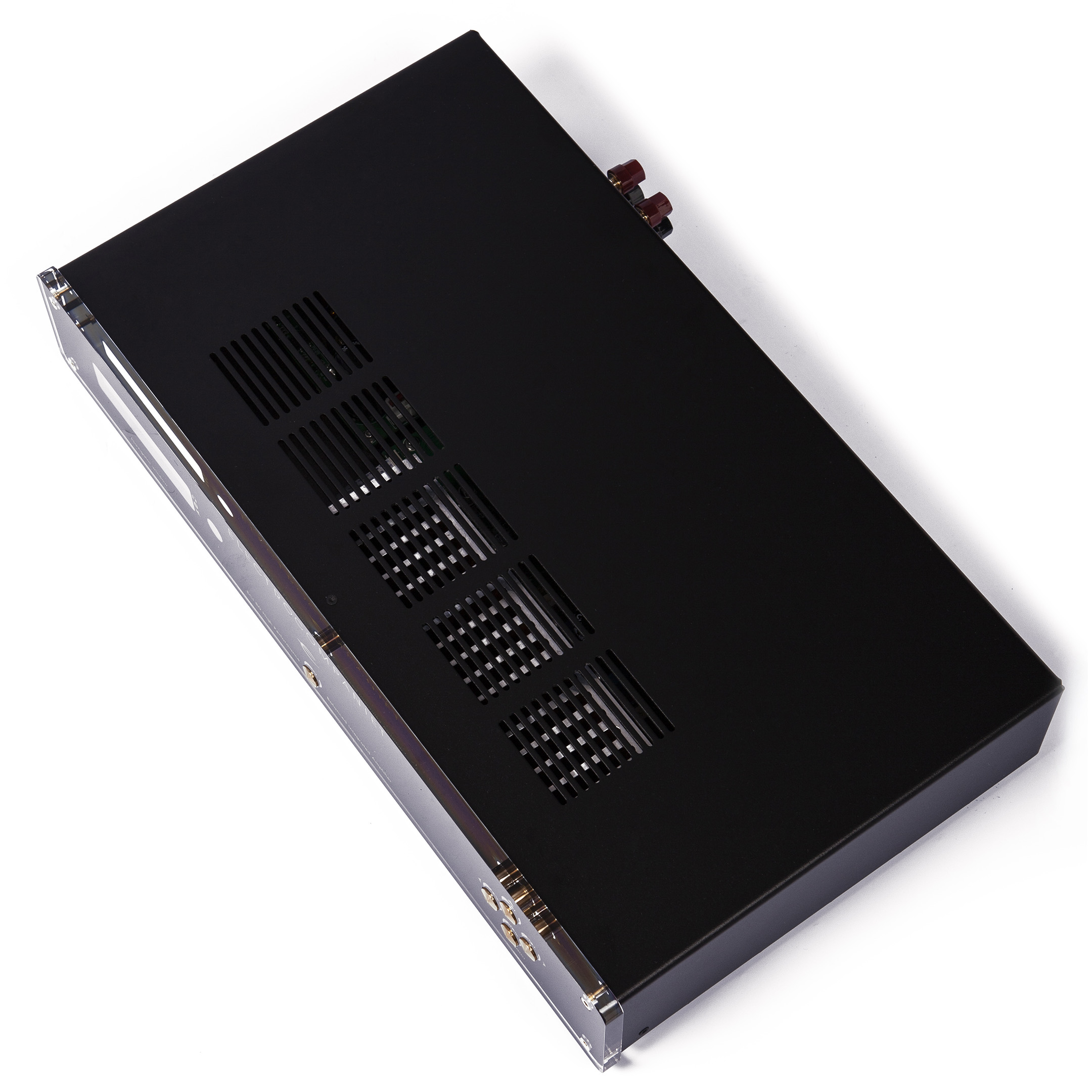
Sonus faber
When the amplifier gets to try out the excellent floor-standing Sonus faber Olympica III, I think it does surprisingly well with its 80 watts per channel. You can raise the sound even a little higher than I experienced with the Hegel H95, so that the sound has time to be felt physically on the body before it flattens out. Like the Hegel amplifier, there is no heavenly match, as the speakers deserve something with even more guff. But what the amplifier is good at, comes out well.
As I said, there is more power than with the Hegel, and the warmer and fuller bass means that rap and plastic-pop get a tougher drive. Cardi Bs WAP looms nicely at the bottom. It is still not as clear in the midrange as with the Hegel, but the extra power more than makes up for this.
In terms of price, it is still more obvious to compare with the H120 than the H95, and then the EC amplifier also gets tough competition. For the extra fast bass reproduction and more dynamic midrange, the H120 gives a head start. It is an objectively better amplifier, although the rose paint the EC amplifier adds to the music is very addictive.
Bluetooth
If you want to play audio wirelessly, you are, as mentioned, at the mercy of Bluetooth. I’m not super excited about it. Yes, it does the job without the big mistakes, but the music sounds a bit more tame over Bluetooth. The sound balance is maintained, and there is no doubt that it is an Electrocompaniet amplifier. But enough sound quality is deprived that I am deleted is not as seduced. Bluetooth sounds better than I would call it an emergency solution, but I would only use it in social teams when you want to allow multiple DJs in the same room.
Conclusion
Electrocompaniet ECI 80D is a welcome amplifier, as it makes the seductive sound available to a larger audience. Here you get a full, warm and warm sound, perfect for the colder season we are about to enter.
The sound is dissolved and dynamic enough to bring out the life in good recordings, at the same time the amplifier has the rosy sound that Electrocompaniet is known for. Like a lovely sunset. We also like both the turntable input and the headphone output.
You can wish for even better resolution, more dynamism and raw power. But then you have to shell out for a more expensive EC amplifier. In its price range, the ECI 80D does a lot right.
If you want a completely neutral sound, this is not the one you should have, and you can find other exciting alternatives at both this price and lower. However, it is not acoustically we first and foremost miss something, it is on functionality. Airplay or Chromecast built-in would be great, and also a USB-DAC input for those who want to use the computer as an audio source.
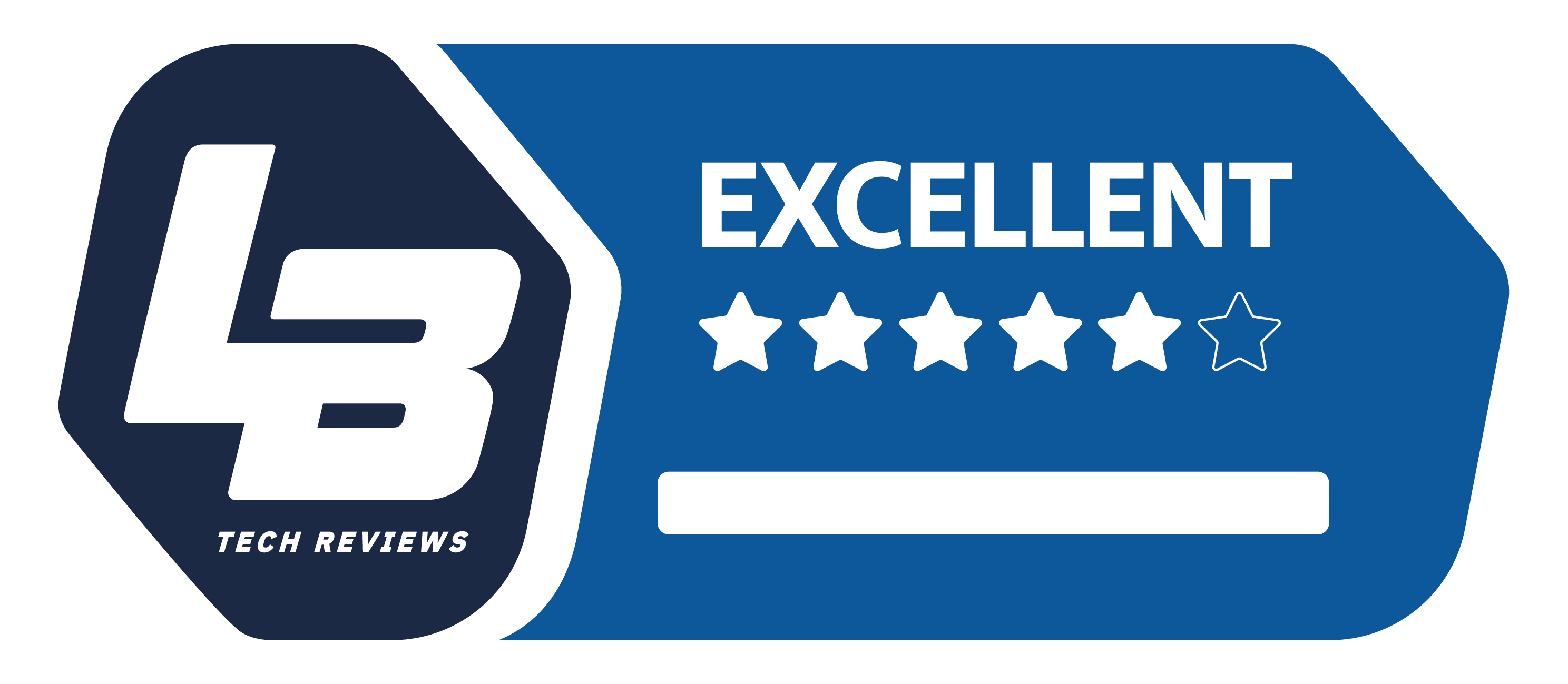
We think
Delicious, warm Electrocompaniet sound at a lower price. Sounding turntable input and digital inputs. Some will also appreciate Bluetooth. There are amplifiers with better dynamics and speed, and we want a network connection and USB-DAC input.
2299 €
Specifications
- Output power: 2 x 80 W in 8 Ohm
- Damping factor: More than 300
- Inputs: 3 optical, 2 coaxial, Bluetooth, 3 RCA incl. Phono, 12V trigger,
- Outputs: 3.5 mm and 6.3 mm headphones, variable line / pre out (RCA), 12V trigger
- Digital resolution: 24-bit / 192 kHz
- Bluetooth: 5.0, SBC, AAC, aptX-HD
- Dimensions: 9 x 47 x 26.2 cm (H x W x D)
- Weight: 8 kg
- Color: black
- Web: electrocompaniet.com
